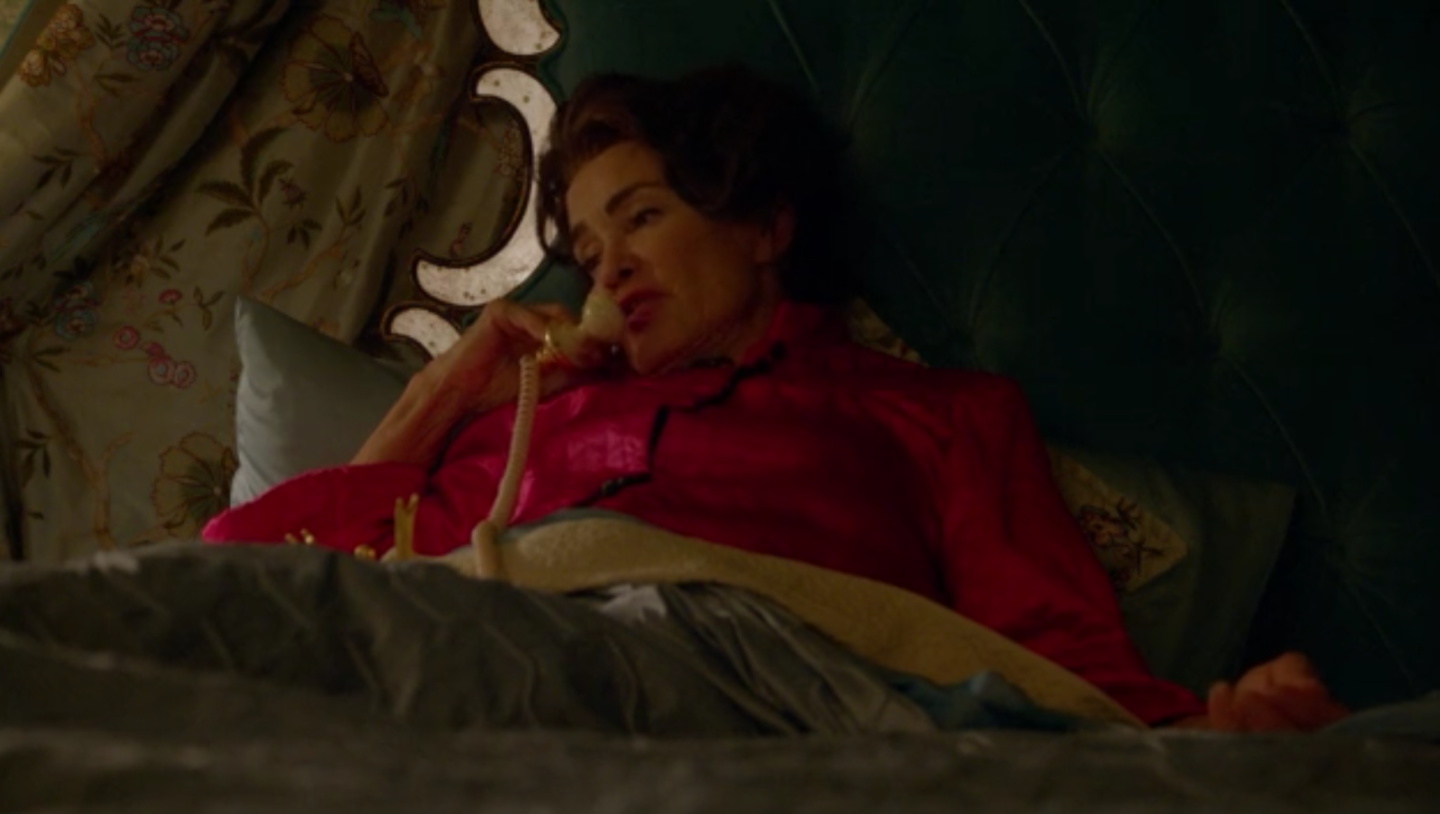On The Jack Paar Show in 1962, Bette Davis (Susan Sarandon) is riding high on the success of her critical acclaim for playing the eponymous villain in What Ever Happened to Baby Jane?. Watching from the embittered perspective of the other side of the screen is Joan Crawford (Jessica Lange). In this momentous fourth episode of Feud, “More, Or Less,” Crawford experiences the intense anguish of uncontrollable jealousy after being the one to put the entire film project together, only to have Davis, originally reluctant to take on the role, bask in all the glory.
To make the situation worse, Davis isn’t in any way interested in sustaining the delusion that she’s a spring chicken the way Crawford is. At fifty-four to Crawford’s fifty-eight at the time of What Ever Happened to Baby Jane?‘s release, Davis was more honest with herself about what was occurring to her body and the associated lack of collective sexual interest in it than Crawford ever was.
This is why she tells Paar after being informed that she and Crawford are more popular with the kids than Fabian right now that she “would suggest they send all their fan mail to Jack Warner, care of Warner Bros. Studios. He didn’t wanna make this picture, you know. You know what his initial reaction was?” Paar leans in like the gossip queen he is and asks, “No, what?” She willingly dishes, “He said he wouldn’t put up a nickel for us two old broads.”
Crawford, drunk and near delirious with rage in her bed, cringes at this turn of phrase–“old broad.” Davis drives the stake further into her heart by concluding, “I guess we showed him there’s still a lotta life left in these two old broads.”
In her state of inebriation, Crawford still manages to drunk dial Davis at her home when she arrives back from the show. When Davis answers, Crawford has passed out, only to be rudely awakened by Davis’ unexpected reply to her call. She then seethes, “Please stop referring to me as an ‘old broad’ or I’ll have to consult my lawyer. It’s slander. And it impairs my ability to secure future work.”
Davis rolls her eyes and retorts, “The only thing impairing your ability is a fifth of vodka.” But for Crawford, it is only because of her alcoholism that she’s managed to survive this long under the strain of being written off as day old bread. As she once stated of her inevitable return to the bottle every time something went south, “Alcoholism is an occupational hazard of being an actor, of being a widow and of being alone. And I’m all three.”
Thus, for the one thing she ever had–stardom–as a constant source of comfort and mood elevation to be taken away from her merely because of age and, by her account, Bette Davis’ outshining success in their co-starring film together, is part of why Crawford clings even more desperately to the false notion that she’s still youthful enough to be a star in 1960s-era Hollywood. But who among us women hasn’t felt like Crawford at one time or another?: insecure, past her prime and green-eyed as all get-out over another female’s triumph when you thought it should be your own. ‘Tis the nature not just of being a woman, but a woman of an artistic temperament. None of this feigned female solidarity mumbo jumbo you see around you today. In truth, women only come together, like Joan and Bette did, when they need to topple or break through a patriarchal entity. This is precisely why Joan flatly turns down Pauline Jameson’s (Alison Wright), Bob Aldrich’s (Alfred Molina) assistant, offer of directing her in a feature. She doesn’t want a woman encroaching on her spotlight–least of all a “nobody.” At the very least, Davis was somebody enough to take over her publicity.






















